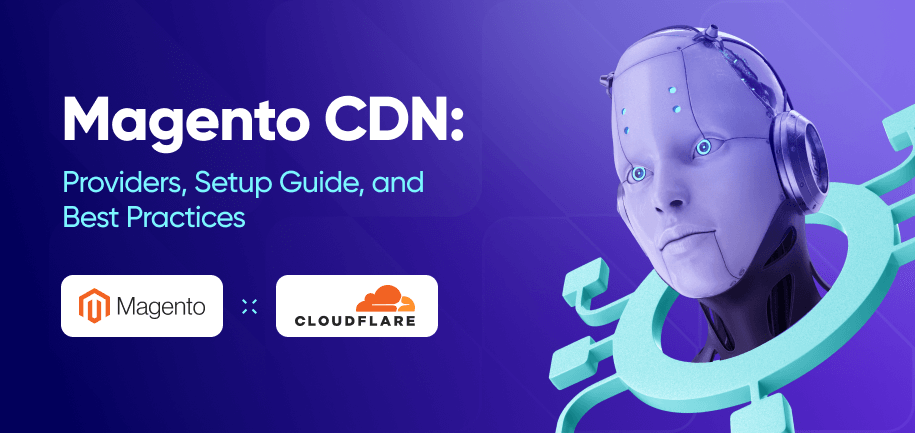
An insight into Technical Financial and Operational Beneifits of CDN as applied to Enterprise Ecommerce Magento
What is a CDN?
A Content Delivery Network (CDN) is a geographically distributed network of servers designed to deliver web content and other digital assets efficiently. By caching content closer to end-users, CDNs reduce latency, improve website performance, and enhance overall user experience.
How a CDN Works
-
Content Replication: Static content (images, CSS, JavaScript) is replicated across multiple CDN servers located in different geographic regions.
-
User Request: When a user accesses a website, the request is routed to the nearest CDN server.
-
Content Delivery: If the requested content is available on the CDN server, it is delivered directly to the user, bypassing the origin server.
-
Dynamic Content: For dynamic content (e.g., product information, user-generated content), the CDN server will fetch it from the origin server and then cache it for future requests.
Why an Ecommerce Needs a CDN
-
Improved Website Performance: By reducing latency, CDNs significantly enhance website load times, leading to a better user experience.
-
Increased Conversion Rates: Faster load times correlate with higher conversion rates as users are more likely to complete purchases.
-
Reduced Server Load: CDNs offload traffic from the origin server, improving its performance and reducing costs.
-
Enhanced SEO: Search engines favor fast-loading websites, and CDNs can positively impact your search rankings.
-
Global Reach: CDNs ensure consistent performance for users worldwide, regardless of their location.
-
Cost Savings: By reducing server load and bandwidth consumption, CDNs can lead to significant cost savings.
How Magento Ecommerce Can Use a CDN
Magento, a popular e-commerce platform, can benefit greatly from a CDN. Here's how:
-
Image Optimization: Magento often uses high-resolution images, which can slow down website loading times. A CDN can optimize and cache these images, improving performance.
-
Static Content Delivery: Static files like CSS, JavaScript, and HTML can be efficiently delivered through a CDN, reducing server load.
-
Full Page Caching: Some CDNs offer full page caching, which can dramatically improve website performance for static content.
-
Video Streaming: If your Magento store offers video content, a CDN can deliver high-quality video streams without buffering.
-
Load Balancing: CDNs can distribute traffic across multiple Magento servers, improving scalability and reliability.
Technical, Financial, and Operational Benefits for CTO, CFO, and Board of Directors
CTO (Technical Benefits):
-
Improved website performance and scalability.
-
Enhanced security through distributed infrastructure.
-
Reduced server load and bandwidth consumption.
-
Greater flexibility for A/B testing and content updates.
-
Integration with existing infrastructure and systems.
CFO (Financial Benefits):
-
Lower infrastructure costs due to reduced server load.
-
Increased revenue through improved conversion rates.
-
Cost savings on bandwidth and storage.
-
Potential for increased customer lifetime value.
Board of Directors (Operational Benefits):
-
Enhanced customer satisfaction and loyalty.
-
Improved brand reputation through better website performance.
-
Faster time-to-market for new products and features.
-
Risk mitigation through reduced downtime and improved security.
-
Competitive advantage through superior website performance.
Selecting a CDN Provider
When choosing a CDN provider, consider factors like:
-
Global coverage and server locations
-
Performance and reliability
-
Security features
-
Pricing and scalability
-
Integration with Magento and other systems
-
Customer support
By carefully selecting and implementing a CDN, Magento e-commerce stores can significantly enhance their performance, user experience, and overall business success.
Would you like to delve deeper into specific CDN providers, or explore how to measure the ROI of a CDN implementation?
Contact us keencomputer.com